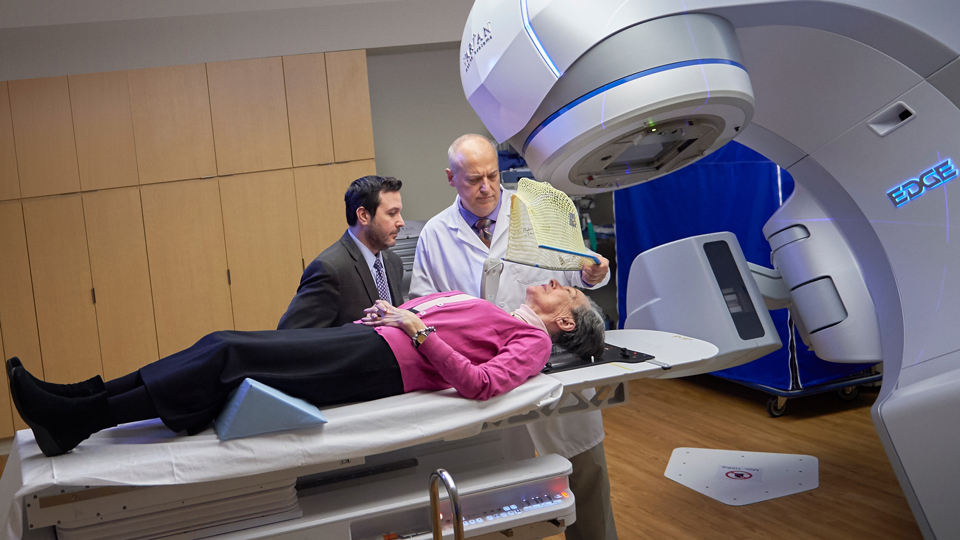Radiation Therapy for Metastatic Brain Tumors
NYU Langone specialists may recommend radiation therapy for people with multiple brain metastases or tumors that can’t be removed surgically. Radiation therapy uses energy beams to destroy cancer cells. It may target all or part of the brain, depending on a person’s diagnosis.
Treatment Planning and Guidance
NYU Langone radiation oncologists use CT scans of the brain in conjunction with computer software to develop a customized treatment plan for you. The software creates a three-dimensional image of the tumor and enables doctors to determine how to best target the metastases, while sparing healthy brain tissue.

Doctors may also use frequent CT scans during your treatments to ensure that radiation therapy targets the cancer and avoids other important tissues. This approach, called image-guided radiation therapy, enables doctors to track the size and shape of the tumor over several weeks as radiation therapy begins to shrink the cancer.
Intensity Modulated Radiation Therapy
Doctors at NYU Langone may use intensity modulated radiation therapy to manage metastases. This approach involves delivering radiation from different directions to target the entire tumor. A machine called a linear accelerator delivers external beam radiation therapy to a tumor. The machine rotates around you during treatment.
Doctors break up the radiation into many small, computer-controlled beams of different adjustable strengths called fractions. Together, these mini-beams are sculpted in three dimensions to closely conform to the size, shape, and location of the cancerous tumor.
This approach may allow for higher doses of radiation therapy to treat the cancer, while better avoiding nearby healthy tissue. Treatment is delivered once daily, five days a week, for about six weeks.
Doctors may also use Gamma Knife radiosurgery at the same time to boost the effectiveness of external beam radiation therapy.
Managing Radiation Therapy Side Effects
NYU Langone doctors actively monitor you for side effects of radiation therapy, which may include nausea and fatigue. They offer integrative therapies as well as rehabilitative support for any symptoms you may experience. Symptoms tend to subside after the treatment is finished.
Meet Our Doctors
Perlmutter Cancer Center specialists provide care and support during treatment.
Browse Doctors